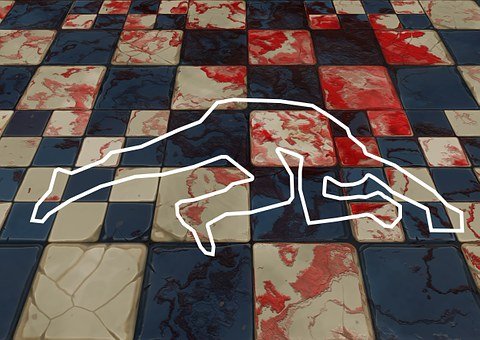Prescription in this area can be defined as: as a crime that remains unpunished because of a certain time since the crime was committed, and people can not be persecuted forever, except in some cases.

Prescript of offense
If a crime was committed and denounced or not, the guilty party is anonymous, without punishment if, after the crime was committed, the time necessary for the prescribing of the crime committed was committed, causing:
The criminal remains without responsibility for the acts he committed (no punishment).
The state waives its right to punish crimes committed to the criminal (no investigations are carried out, nor can the crime be reported).
process
The time begins to run from the last date of the last crime that was committed.
In related offenses, the date of the most serious crime shall be taken into account.
Many crimes have different dates of prescription like: 20 years for crimes of 15 years or more of punishment. 15 years for crimes of 10 -15 years, 10 years for 5-10 years, 5 years for the remainder of crimes, for minor crimes 1 year.
New complaints do not paralyze the date for prescription
If criminal proceedings were initiated against a suspect, the statute of limitations would be stopped, and would continue if it were not the culprit.
If a compound sanction is imposed, the prescription will take a greater place to the one that owns.
- Example: a person (anonymous) committed a crime of 5 years in jail, was denounced, but was not found, appearing after 6 years, then the crime has already been prescribed, and punishment can not be given to the person.

Of penalties
If a trial was carried out and a final sentence was given against the criminal, but the criminal does not serve the sentence and evade it for a certain time, the penalty is prescribed, causing:
The state can not punish the crime for which it was prosecuted.
process
After the trial has been completed and handed down to the sentence, the criminal evades the sentence.
The time begins to run from the midnight of the day that the sentence was given.
Many offenses have different prescription dates as: 30 years for sentences of 20 years or more of punishment, 25 years for 15-20 years, 20 years for 10-15 years, 15 years for 5-10 years, 10 years For the remaining severe sentences, 5 years for less severe sentences, 1 years for minor sentences.
Example: a trial was held and an 8-year sentence was issued for a person, but the person evades punishment for 9 years, and returns, the state can not re-enact a sentence against the person for the crime to which He was sentenced nine years ago, then the person remains without punishment.

Offenses and penalties that do not prescribe
A large majority of crimes prescribe, while a few, those who are considered the most serious never prescribe, such as crimes against humanity, genocide, terrorism (if there were dead), war crimes.
- Example: the crimes committed by the former president of Peru alberto fujimori (the case of the students of La Cantuta and the Barrios Altos case), were sentenced to 25 years in prison for crimes against humanity.

Interesting article!! Where human hearts prove more powerful than the course of justice!!!
Downvoting a post can decrease pending rewards and make it less visible. Common reasons:
Submit